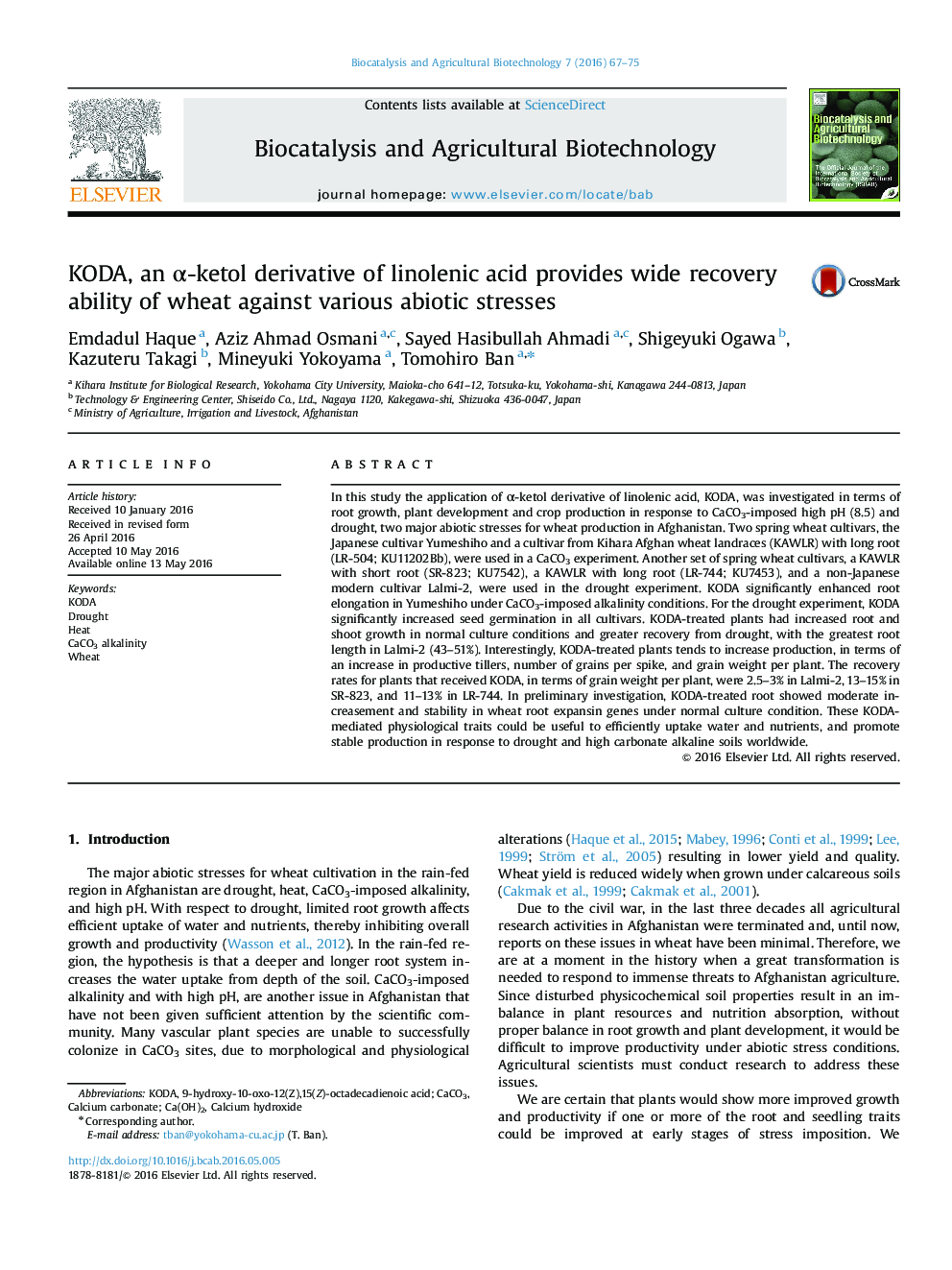| کد مقاله | کد نشریه | سال انتشار | مقاله انگلیسی | نسخه تمام متن |
|---|---|---|---|---|
| 2075613 | 1544905 | 2016 | 9 صفحه PDF | دانلود رایگان |

• The role of KODA for crop sustainability against abiotic stresses was studied.
• KODA enhanced root elongation in wheat under CaCO3 condition.
• KODA increased seed germination, root and shoot growth in wheat against drought.
• KODA tended to push up yield and yield components in wheat against drought.
• KODA tended to increase and stabilize wheat expansion genes in root.
In this study the application of α-ketol derivative of linolenic acid, KODA, was investigated in terms of root growth, plant development and crop production in response to CaCO3-imposed high pH (8.5) and drought, two major abiotic stresses for wheat production in Afghanistan. Two spring wheat cultivars, the Japanese cultivar Yumeshiho and a cultivar from Kihara Afghan wheat landraces (KAWLR) with long root (LR-504; KU11202Bb), were used in a CaCO3 experiment. Another set of spring wheat cultivars, a KAWLR with short root (SR-823; KU7542), a KAWLR with long root (LR-744; KU7453), and a non-Japanese modern cultivar Lalmi-2, were used in the drought experiment. KODA significantly enhanced root elongation in Yumeshiho under CaCO3-imposed alkalinity conditions. For the drought experiment, KODA significantly increased seed germination in all cultivars. KODA-treated plants had increased root and shoot growth in normal culture conditions and greater recovery from drought, with the greatest root length in Lalmi-2 (43–51%). Interestingly, KODA-treated plants tends to increase production, in terms of an increase in productive tillers, number of grains per spike, and grain weight per plant. The recovery rates for plants that received KODA, in terms of grain weight per plant, were 2.5–3% in Lalmi-2, 13–15% in SR-823, and 11–13% in LR-744. In preliminary investigation, KODA-treated root showed moderate increasement and stability in wheat root expansin genes under normal culture condition. These KODA-mediated physiological traits could be useful to efficiently uptake water and nutrients, and promote stable production in response to drought and high carbonate alkaline soils worldwide.
Figure optionsDownload as PowerPoint slide
Journal: Biocatalysis and Agricultural Biotechnology - Volume 7, July 2016, Pages 67–75